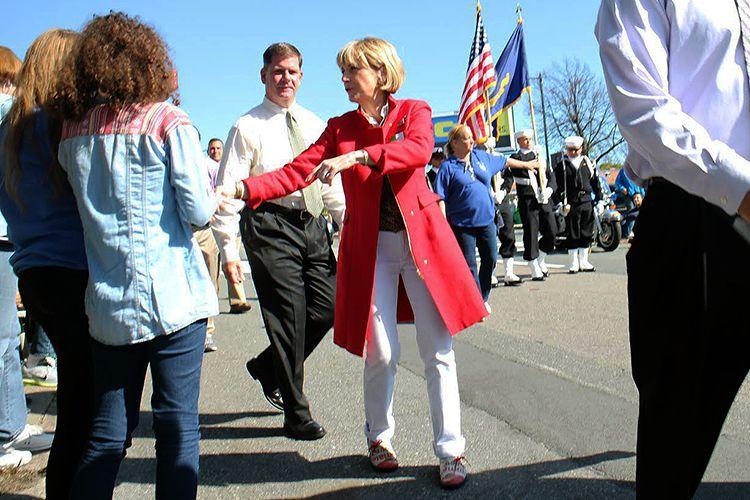A general elementary school education consisted of reading, writing, arithmetic and the unquestionable knowledge that Christopher Columbus discovered America. We were told that this Italian man working for Spain is the reason we walk on American soil and more importantly, the reason why we always have that convenient second Monday off in October. This all seems reasonable enough, until a quick fact check reveals that Columbus didn’t even discover America. He had little clue of what he actually discovered and was also the catalyst of racial ignorance against the Native Americans, among other things.
Let’s start with a little history lesson. Yes, Christopher Columbus did sail the ocean blue (also known as the Atlantic Ocean) in 1492 on three ships called the Niña, the Pinta and the Santa Maria. No, he was not the first person to cross this vast ocean. That honor goes to Norse Viking Leif Erikson, who reached present-day Newfoundland in 1000 A.D. Yes, Columbus did “discover” (in the loosest sense of the word) something, but it wasn’t the North American mainland. He wasn’t even looking for America, but had intended to discover an easy trade route to Asia. His crew eventually landed in the Bahamas, where he proceeded to take the natives prisoner and forced them to help him search for gold. Although he insisted that he discovered the coast of Asia, he never found the trade route he had promised. Instead, his voyages would see him through the Caribbean islands, South America and Central America, where he enslaved their people, forced them to convert to Christianity, inflicted deadly illnesses that wiped out the indigenous people and served as a catalyst for future European explorers to abuse the natives of North America.
Despite this, Monday marked another year of celebrating Columbus Day in Massachusetts. Although a group of Italian-Americans, who were honoring their shared heritage with Columbus, celebrated the first Columbus Day in New York in 1866, U.S. President Franklin D. Roosevelt declared the occasion a federal holiday in 1937. Today, only 24 states and the District of Columbia celebrate Columbus Day by giving workers a day off, according to the Council of State Governments’ 2013 list of state-observed holidays. Alaska and Oregon do not celebrate at all. Hawaii uses the day to celebrate its Polynesian heritage, and South Dakota uses the day to celebrate Native Americans. The remaining states merely acknowledge the day’s existence and get on with their lives.
Massachusetts is one of the states that still recognizes — and celebrates — Columbus Day, and the holiday is alive and well in Boston. On Sunday, the city convened for the East Boston Columbus Day Parade, although it was more of a platform for Massachusetts gubernatorial candidates Charlie Baker and Martha Coakley to connect with potential voters. However, festivities like Boston’s are dwindling in cities across the country. This year, Minneapolis, Minnesota and Seattle elected to change the holiday to “Indigenous Peoples’ Day,” a move applauded by the numerous groups who feel Columbus Day perpetuates America’s long history of discrimination against natives.
“Learning about the history of Columbus and transforming this day into a celebration of indigenous people and a celebration of social justice…allows us to make a connection between this painful history and the ongoing marginalization, discrimination and poverty that indigenous communities face to this day,” said Seattle City Council member Kshama Sawant to The Seattle Times on Oct. 6, when the city elected to reappoint the day.
As one of the first settled colonies, Massachusetts has closer ties to the work of Columbus than somewhere like Seattle. After all, if Columbus not happened upon North America, the future settlers of Europe might not have known that land was available. Plus, the holiday creates an air of patriotism for many, including the Italian-Americans, who regard Columbus as one of their own. Yet clearly Massachusetts, which was named for the area’s indigenous population, the Massachusett tribe, has a deeply rooted Native American culture, and re-appropriating “Columbus Day” to “Indigenous Peoples Day” would allow for the significance of North America’s official “founding” to commingle with a celebration of the people who have lived here all along.
A change in name also calls for a more important adjustment in education about Columbus and North America’s origins. Generally, elementary school children are spoon-fed a nice, largely untrue story about a man who valiantly sailed to America and “discovered” it. Much of history is taught from a Eurocentric perspective, which likely accounts for the sympathetic depiction of Columbus. However, America’s population and history were influenced by several cultures other than Europe’s, and those should be recognized as well.
Maybe a change in the name of Columbus Day could launch such a movement, but whatever you want to call the second Tuesday of October, as long as Boston University continues to get us a day off, let some kind of holiday stand.






















































































































